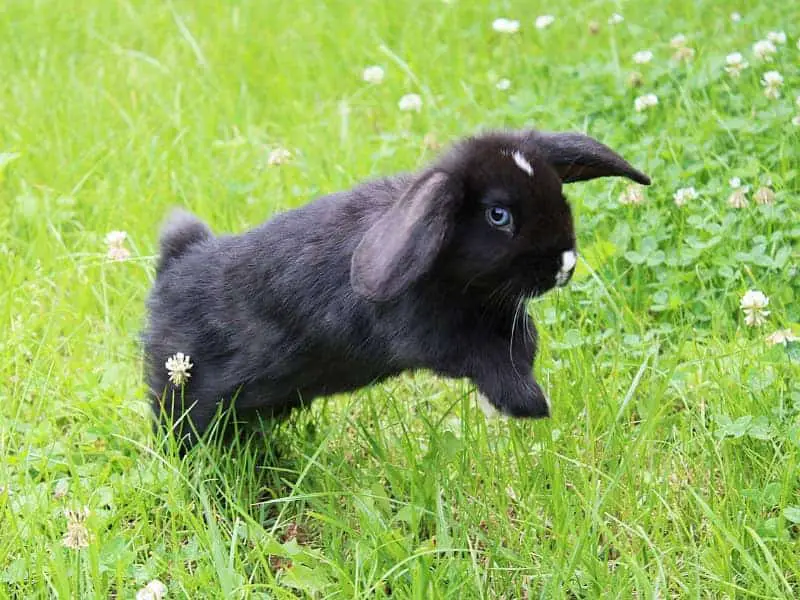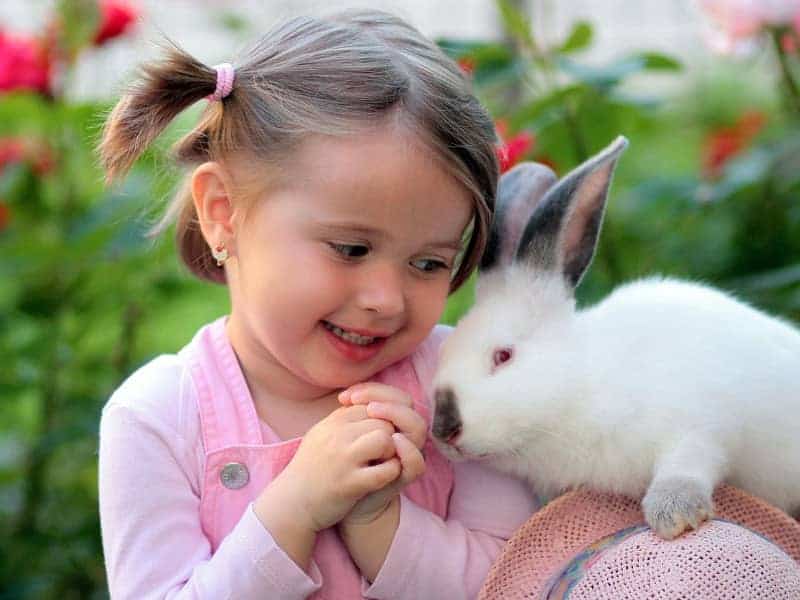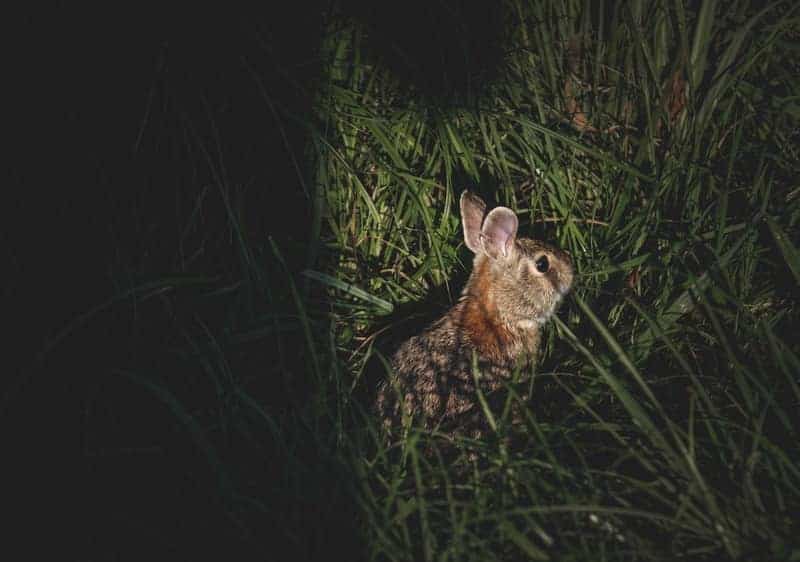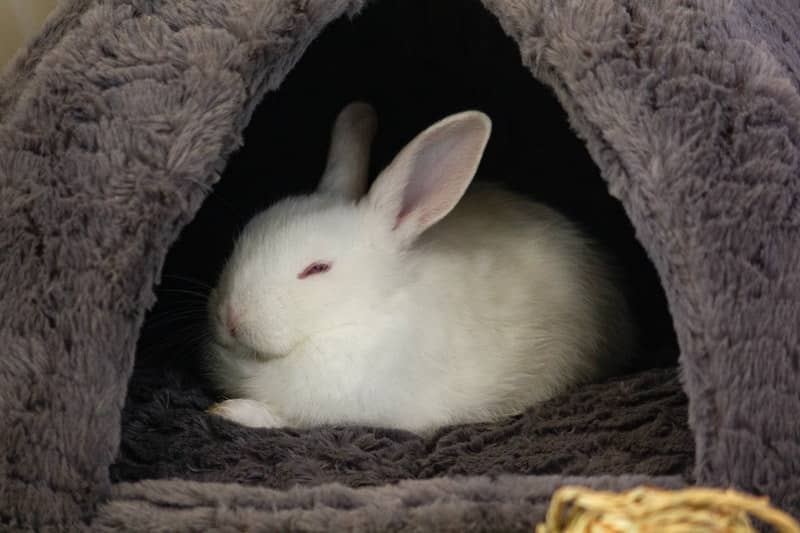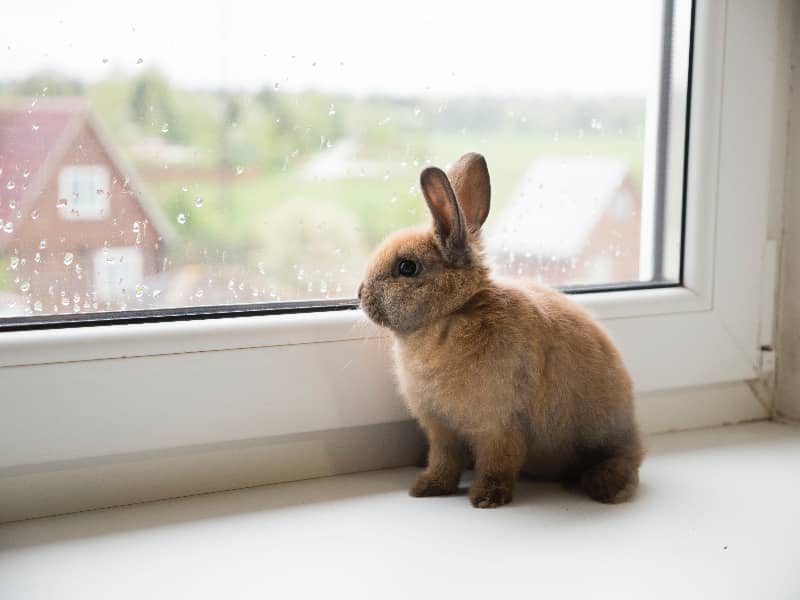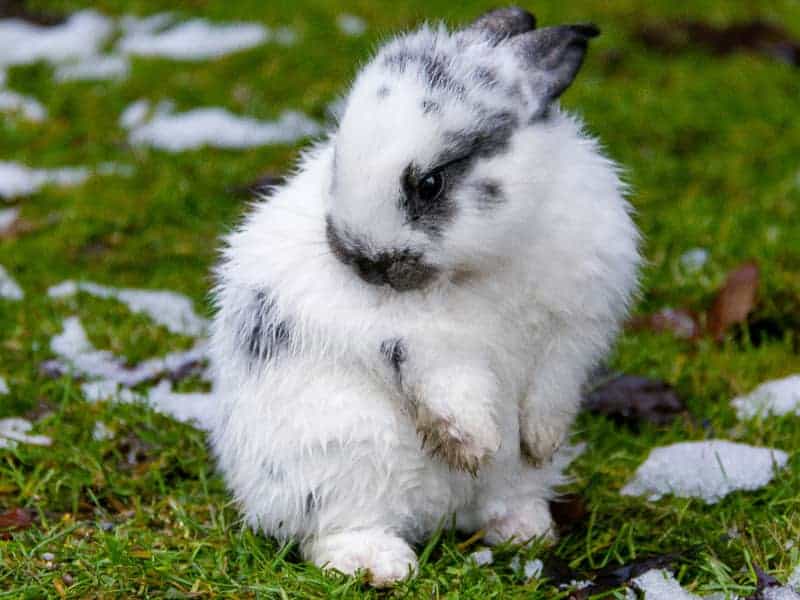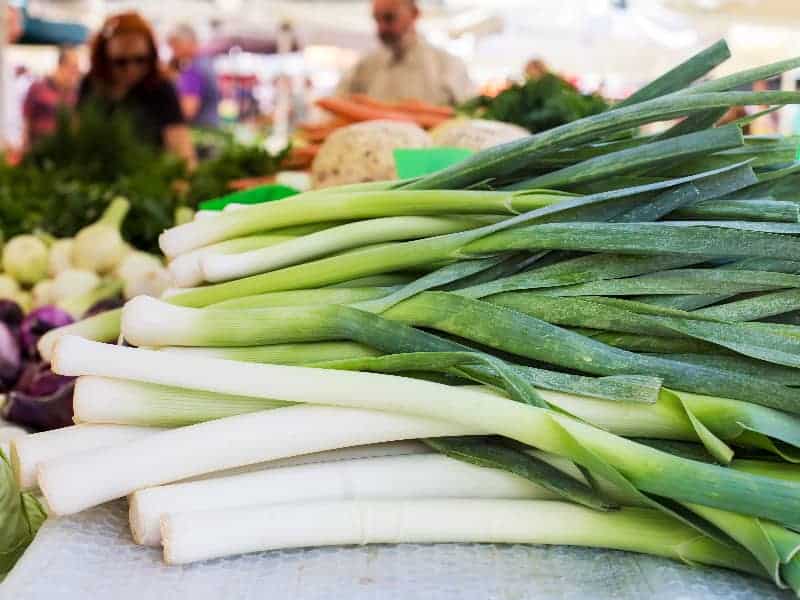
Are rabbits allowed to eat leeks?
So you have a rabbit, or maybe even several, and you're wondering if it's safe to feed them leeks. Rabbits are small but complex creatures, and their dietary needs can be just as complicated as our own. In this blog post, we'll dig deep and answer the following question, "Are rabbits allowed to eat leeks?"
- Are rabbits allowed to eat leeks?
- The rabbit's digestive system: a complex marvel
- Leeks: a flavorful vegetable
- Why leeks can be dangerous for rabbits
- What should rabbits eat instead?
- The role of exercise and nutrition in the health of your rabbit
- The importance of regular health checks
- Special nutritional needs of rabbits at different stages of life.
- The dangers of too much sugar in the diet of rabbits
- Conclusion: Are rabbits allowed to eat leeks?
The rabbit's digestive system: a complex marvel
Before we address the specific question of whether rabbits can eat leeks, it is important to understand how a rabbit's digestive system works. A rabbit's digestive system is incredibly delicate. It specializes in digesting mainly cellulose from grasses and hay.
Fresh vegetables and fruits can serve as supplements, but the base should always consist of raw fiber-rich materials. Proper nutrition is essential to your rabbit's health, as malnutrition can cause serious digestive problems, such as stomach overload.
Leeks: a flavorful vegetable
Leeks belong to the onion family, which also includes garlic, onions, chives and leeks. These vegetables are known for their strong, spicy flavor and high content of sulfur compounds. But is leek also suitable for rabbits?
Why leeks can be dangerous for rabbits
The short answer to the question of whether rabbits should be allowed to eat leeks is no. The main reason is the high levels of thiosulfates found in leeks and other onion crops. Thiosulfates can cause a form of anemia in rabbits known as Heinz body anemia, which is caused by damage to red blood cells.
Moreover, consumption of leeks and similar vegetables can cause stomach upset, loss of appetite, and even more severe digestive problems in rabbits.
Another aspect to consider is that rabbits are generally very sensitive to changes in their diet. A sudden change or the introduction of new foods can upset the balance of their digestive systems and cause problems.
What should rabbits eat instead?
Now that we've clarified that leeks are not suitable for rabbits, you may be wondering what to feed your fluffy friend instead. The main components of a rabbit's diet should be hay and water. Hay is rich in fiber and helps keep your rabbit's digestive system healthy.
Fresh vegetables and fruits can serve as a supplement to the main diet, but in moderation. Some good options are carrots, broccoli, celery, apples and pears. Remember to give the fruit in small amounts due to the high sugar content.
Varied diet for healthy rabbits
A varied diet is essential to your rabbit's nutrition. While hay and water should form the basis of their diet, different types of vegetables and occasional fruit will help keep their diet balanced and provide them with all the nutrients they need. Note, however, that you should introduce new foods slowly and always pay attention to your rabbit's reaction.
Pay attention to portion sizes
It is not only important what kind of food you give your rabbit, but also how much of it you give. Overfeeding vegetables and fruits can cause digestive problems. As a rule of thumb, the amount of vegetables you give your rabbit should be about the size of his body. Fruit should only be given in small amounts as a treat.
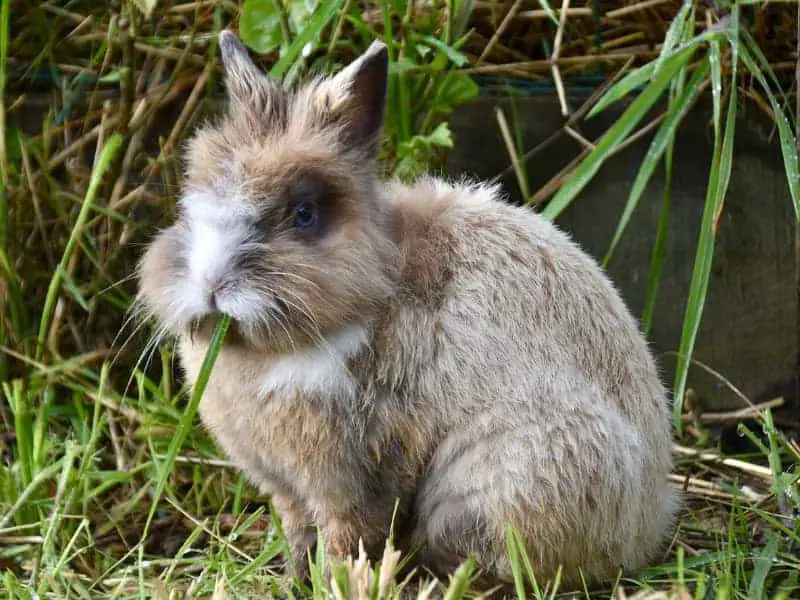
The role of exercise and nutrition in the health of your rabbit
It is important to remember that diet is only one part of the health equation. Rabbits are naturally active animals that need plenty of exercise. Both physical activity and mental stimulation are essential to your rabbit's well-being. So, while you're watching what your rabbit eats, remember to give him plenty of play and exercise time, too!
The importance of regular health checks
Even if you are very careful with your rabbit's diet, it is still important to do regular health checks. A veterinarian can determine if there are signs of disease that you may have missed. They can also advise you on how to tailor your rabbit's diet to meet his specific needs.
Special nutritional needs of rabbits at different stages of life.
Remember that your rabbit's nutritional needs may vary depending on age and health. Young rabbits, pregnant or nursing mothers, and older rabbits may have special dietary needs. Make sure you know these needs and that your rabbit's diet is adjusted during these life stages.
The dangers of too much sugar in the diet of rabbits
We have already mentioned that fruit should only be fed to rabbits in small amounts. The reason for this is the high sugar content in most fruits. Too much sugar can cause digestive problems in rabbits and increase the risk of obesity and other health problems.
Some vegetables can also contain more sugar than you might think. Carrots and peppers, for example, should only be given in moderation, as they have relatively high sugar contents.
Conclusion: Are rabbits allowed to eat leeks?
Your rabbit's diet is an important aspect of its overall health and care. While some foods may be safe and even beneficial for your rabbit, others, like leeks, can be harmful. Therefore, it is always important to educate yourself before offering a new food to your rabbit. If you ever have doubts, do not hesitate to consult a veterinarian. After all, you only want the best for your fluffy little friend!
Author

-
Garden animal - A life with nature
Welcome to my animal blog! My name is Dirk and I am happy to take you on my journey through the fascinating world of animals and gardening.
Born 54 years ago, I have had an insatiable curiosity for the animal world around me since childhood. Although I have moved professionally in other industries, my true passion has always been animals and nature. It is remarkable how a small garden has become such an important part of my life.
Many of my fondest memories are associated with the animals that share our home. Whether it's the curious squirrels that scurry across the trees in the morning, the colorful variety of birds that visit our feeders, or the busy bees and butterflies that pollinate our flowers, every moment with them is invaluable to me.
This blog is my contribution to share my experiences, discoveries and insights with like-minded people. Here I will share stories of unforgettable encounters with animals, give tips on gardening and creating wildlife-friendly habitats, and take you on my journeys through nature.
Thank you so much for being here!
Cordial,
Dirk aka garden animal
Last posts
- 27. February 2024PetsVeganes Hundefutter – Grün und Gesund?
- 18. January 2024ChickensOregano für Hühner
- November 27, 2023HamsterDiurnal hamsters
- November 24, 2023HamsterHamster hammock

